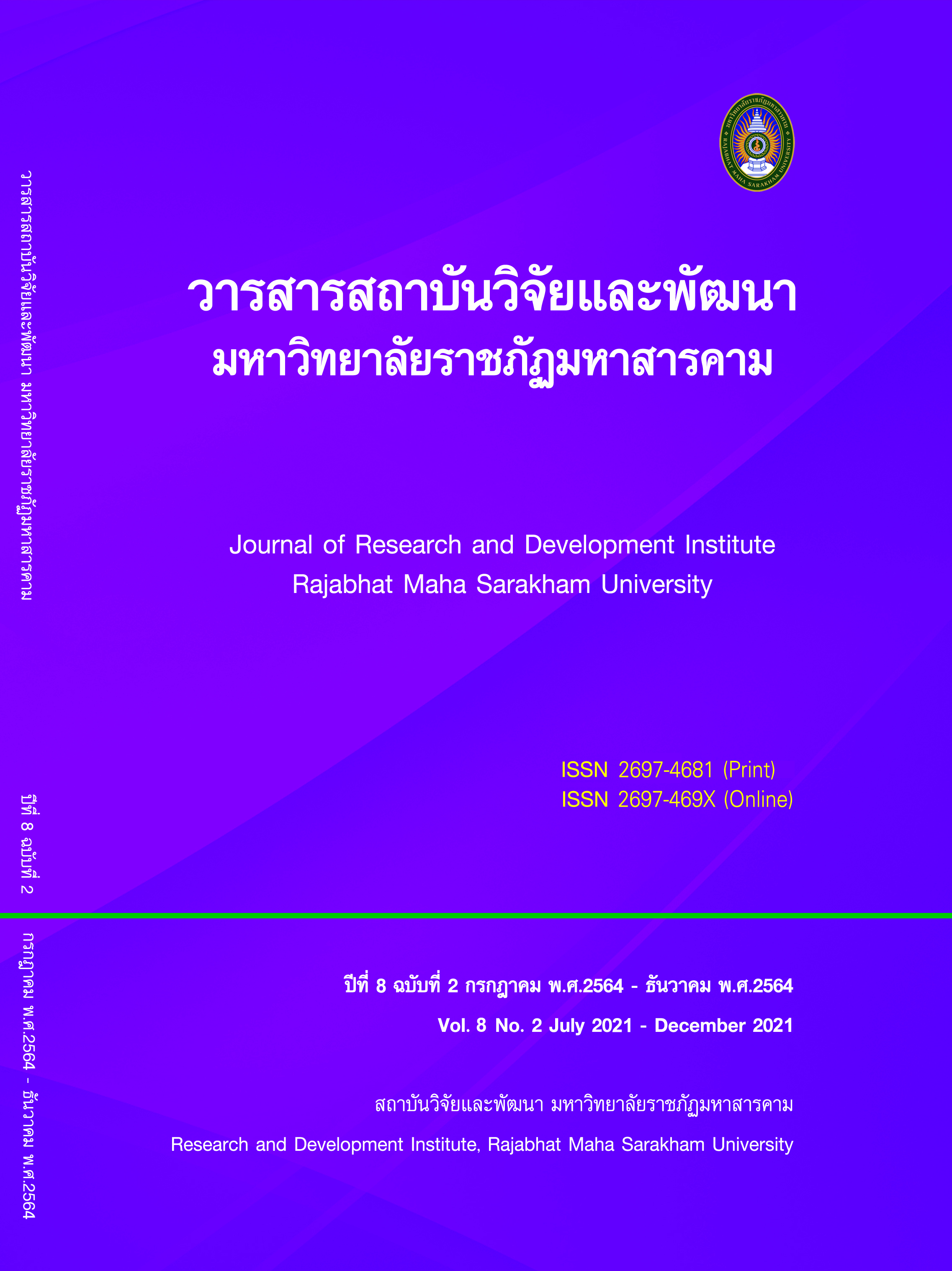The Development The Development of problem-based learning activities on price mechanisms in the economy Economics Secondary for Grade 9
Keywords:
problem-based learning activities, Academic achievement, critical thinkingAbstract
This research aims to 1) develop a problem-based learning activity on the price mechanism in the economy. To be effective according to the criteria of 80/80 2) Compare the academic achievement before and after studying Economics of Mathayomsuksa students. That were managed to learn by using problems as a base 3) comparing critical thinking skills before and after studying Of Grade 9 students who were managed to learn using problems as an economics base 4) Student satisfaction questionnaire The statistics used for data analysis were hot value, mean, standard deviation. And t-test dependent statistics
The research results were as follows: 1) The results of development of problem-based learning activities on the price mechanism in the economy To be effective according to the criteria 80/80 has 10 learning activity plans. Each plan contains standard essence / indicators / learning outcomes. Learning purpose Learning Learning activities Media / Learning Sources And measurement and evaluation The results of the evaluation of suitability were average from 4.14 - 4.48 and the results of the analysis for the effectiveness of the learning activities using problem-based problems were the price mechanisms in the economic system. To be effective (E1 / E2) = 88.33 / 82.22 which meet the specified criteria. 2) Grade 9 students who study with problem-based learning activities The GPA was 14.56 and the GPA was 24.66, with significantly higher post-study achievement at the .05 level. 3) Mathayom Suksa 3 students who study by organizing learning activities using critical thinking Having a pre-school GPA of 35.63 and a post-class mean score of 41.63, with a significantly higher post-study critical thinking ability than before at the .05 level. 4) Satisfaction of Grade 9 students with social studies subjects. (Citizenship, culture and lifestyle content) after organizing problem-based learning activities Has the highest level of satisfaction ( = 4.54, SD = 0.61)
References
Amorncheewin, B. (2013). Critical Thinking: Principles for the Development of Logical, Rational and Judicial Thinking. Bangkok: Institute of Critical Thinking.
Ministry of Education. (2008). Basic Education Core Curriculum, B.E. 2551.Bangkok: The Agricultural Cooperative Federation of Thailand.
Nilphan, M. (2014). Educational research methods. (8thed). Nakorn Pathom: Silpakorn University.
Nuengchaloem, P. (2013). Teaching and learning research. Bangkok: Chulalongkorn University.
Office of the Education Council Secretariat (2007). Learning management guidelines 3) Problem-based learning. Bangkok: The Agricultural Assembly of Thailand.
Office of the Education Council Secretariat (2018). Council of Education Panel Discussion 2016-2017 Role of Thai Education in Yuk Thailand 4.0. Bangkok: NESDB.
Panghom, R. (2015). Building a learning activity series using problem-based geographic phenomena for Mathayomsuksa 4 students (Master's Thesis). Chonburi: Burapha University.
Patanang, K. (2017). Development of problem-based learning activities in conjunction with Socrates questioning techniques to promote savvy thinking of Mathayomsuksa students. Master of Thesis: Mahasarakham University.
Sinlarat, P. (2016). How to improve the quality of basic education in Bangkok? Bangkok: Mac Ed.
Downloads
Published
How to Cite
Issue
Section
License
Copyright (c) 2021 Journal of Research and Development Institute Rajabhat Maha Sarakham University

This work is licensed under a Creative Commons Attribution-NonCommercial-NoDerivatives 4.0 International License.
Articles that are published are copyrighted by the authors of the articles







